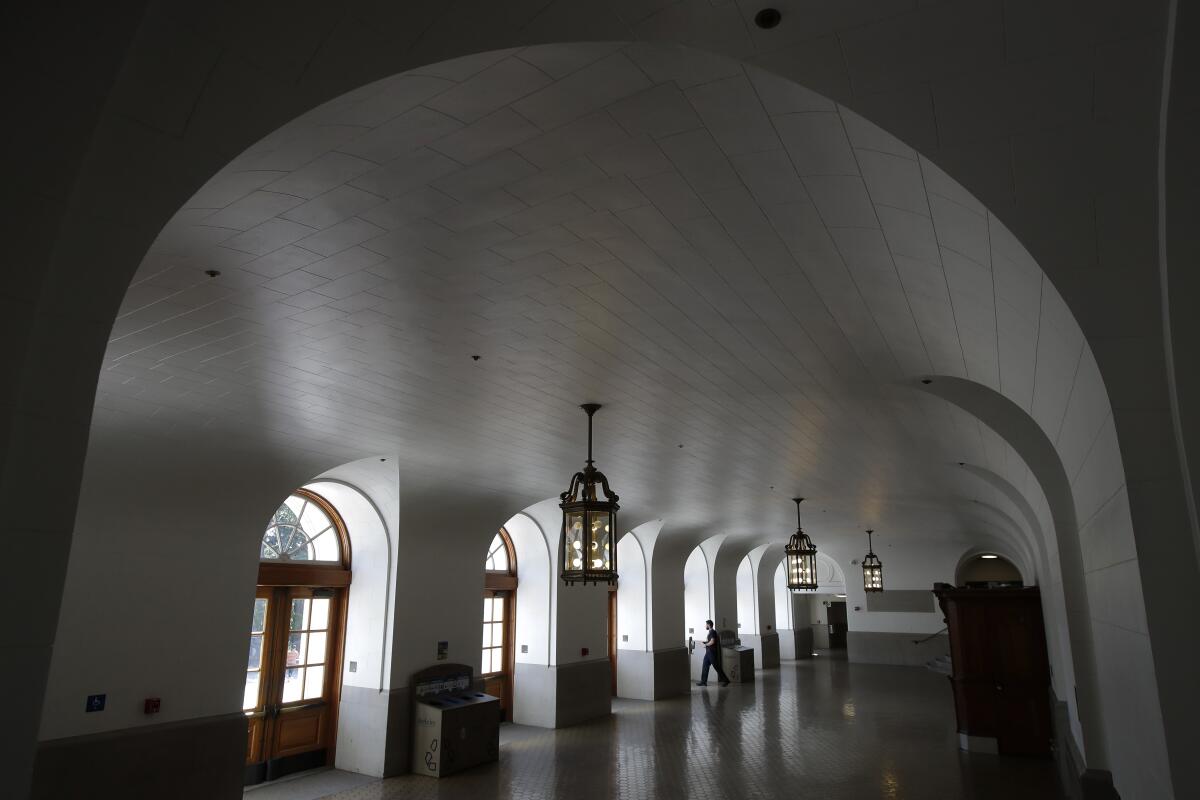UC Berkeley tightens COVID-19 restrictions, bans outdoor exercise and extends dorm lockdowns

- Share via
UC Berkeley has banned outdoor exercise and extended dorm lockdowns after more than 160 people tested positive for the coronavirus in the first week of February.
According to the university’s COVID-19 tracker, 164 people tested positive for the deadly virus; 95% of the cases came from undergraduate students. Five faculty or staff members and three graduate students also tested positive. The university’s positive rate for that week was 1.6% while the city of Berkeley’s was 0.6%.
In an email to students this week, the university said that though the new cases are slowing, a “significant number of students remain in quarantine.”
“We must be cautious in lifting this sequestration,” the email said.
Shelter-in-place precautions were eligible for removal on Feb. 8. Now, students must remain in dorms through at least Feb. 15.
The two-week incubation period required by the virus makes it too early to know if the surge has been contained, the email said. Lifting the rule “will be determined by our ability to reduce virus transmission.”
“We understand this extension is frustrating, but please understand this will help us mitigate further spread while protecting our community,” the university said.
Students are not allowed to leave their dorms unless for approved reasons, including using assigned bathrooms, seeking medical care, getting food or getting tested for the coronavirus, which is required twice weekly.
The university also urged students to resist leaving campus or going home. Students could infect a “loved one who may be more likely to become severely ill,” the memo said.
The university last week said it detected a more contagious strain in two students. There is no indication that they were on campus except to get tested.
The strain, B.1.1.7, was first detected in the United Kingdom. Officials predict the strain will become the dominant coronavirus nationwide by the end of March. There are at least 693 cases of B.1.1.7 in 33 states, with the highest numbers in Florida (201) and California (153).
The U.K. strain has been identified in San Diego, Los Angeles, Orange, San Bernardino, Alameda, San Mateo and Yolo counties.
More to Read
Sign up for Essential California
The most important California stories and recommendations in your inbox every morning.
You may occasionally receive promotional content from the Los Angeles Times.











